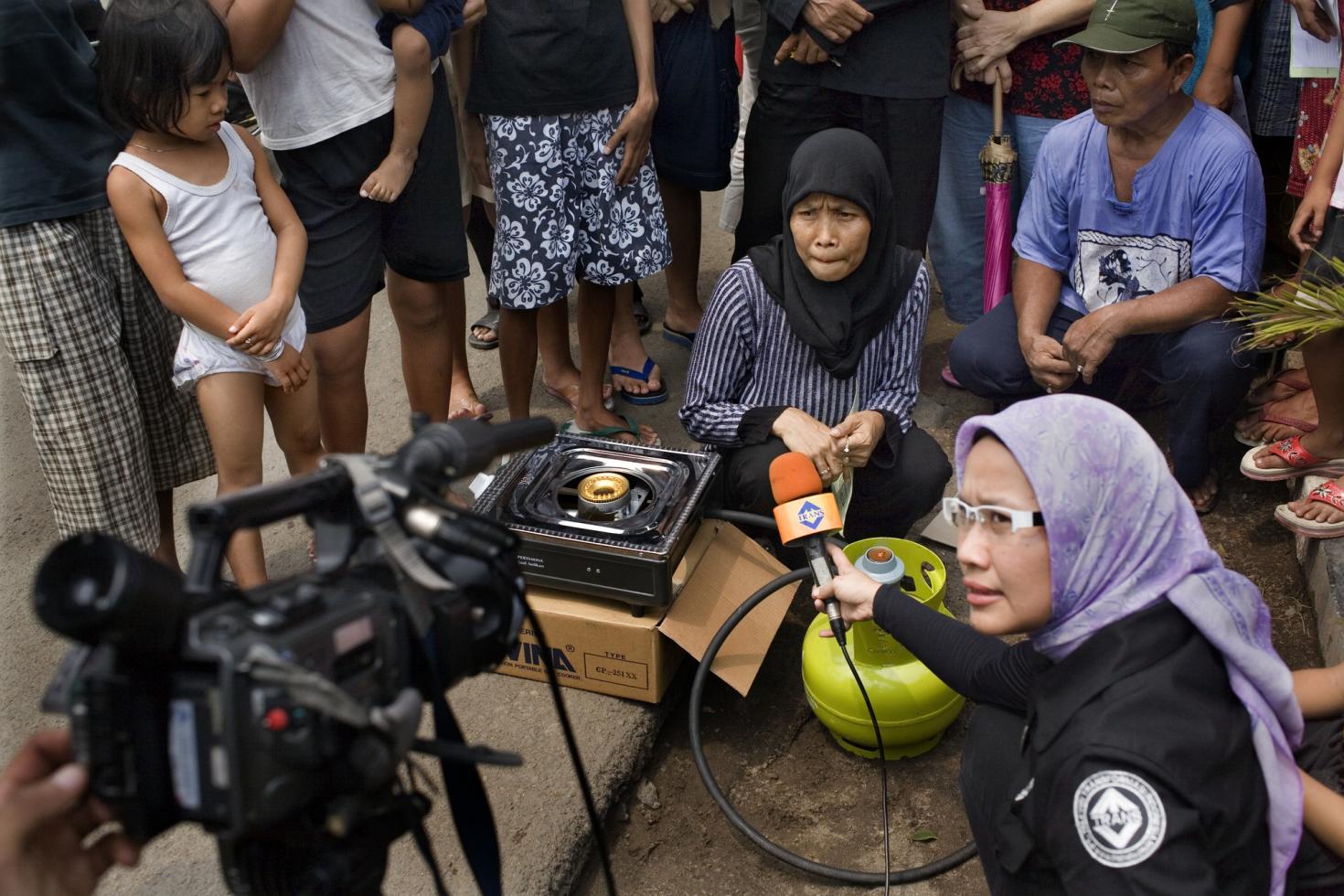
Indonesia is considering implementing a prohibition on investigative journalism as well as anything related to the LGBT community
The Indonesian government is suggesting amendments to its broadcast legislation that would prohibit investigative journalism and programming related to the LGBT community. This move has triggered backlash from civil society organizations and filmmakers who are concerned about the curtailment of press freedom and artistic expression.
Initial deliberations on amending the 2002 broadcast law began in 2020. However, the specific modifications in the most recent amendments have raised concerns, as stated by Indonesia’s Press Council, which believes that these changes would weaken media autonomy.
“The effect on the freedom of the press is highly significant,” stated Arif Zulkifli, the leader of the council’s law and legislation division. “According to Indonesia’s press law, censorship or prohibition of journalism is strictly prohibited.” This statement is paradoxical.
According to communications minister Budi Arie Setiadi, the government has not yet received the draft bill. He emphasized that any amendments made to the bill should not restrict media freedom.
According to journalism and civil society organizations, the proposed restrictions on journalism in Indonesia, the world’s third-largest democracy, will negatively impact freedom of expression and the hard-fought liberties that have been achieved since the country transitioned from authoritarian rule in 1998.
The measure lacks specific information regarding the implementation of the proposed prohibition on investigative reporting, however, journalist organizations expressed apprehension regarding the potential for censorship.
“The bill will restrict our ability as journalists to expose significant stories, such as those related to corruption, nepotism, and environmental crimes,” stated Bayu Wardhana, the leader of the independent journalists’ association.
“The implementation of the measure will result in the absence of press independence,” stated Ninik Rahayu, the chair of Indonesia’s Press Council. Rahayu further mentioned that the council was not involved in the bill’s writing process and was not contacted.”
The measure has faced criticism due to its aim to prohibit anything that showcases violence, mysticism, LGBT representation, or “negative behavior or lifestyles that may pose a potential threat to the public.”
Famed filmmaker Joko Anwar strongly criticized the concept, deeming it “perilous” and “impracticable” to execute.
“The prohibition of such content not only hinders the ingenuity of the artistic sector and the liberty of the media, but also weakens individuals’ ability to discern what they view,” he stated.
The legislators from commission 1, responsible for overseeing the bill, have emphasized that the amendments to the bill are in the early stages and may be modified.
“We aim to avoid conveying the perception of homophobia and excessive monitoring,” stated Nico Siahaan, a member of commission 1, emphasizing that the law will undergo intense debate.”
Homosexuality is a sensitive and prohibited topic in Indonesia, a country with a predominantly Muslim population and one of the most populous nations in the world. It is considered illegal in the Aceh province, which follows sharia law.
If approved, the modifications would be applicable to all programming aired in Indonesia, encompassing online streaming platforms as well.
In recent weeks, the Indonesian parliament has been discussing a number of contentious legal amendments, which include alterations to the constitutional court statute. These revisions aim to grant the government increased authority to dismiss incumbent judges.
All Categories
Recent Posts
Tags
+13162306000
zoneyetu@yahoo.com



